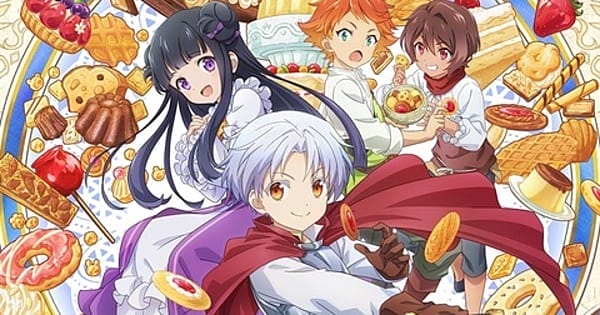
Candy Reincarnation Anime Collection Evaluation
When you do some research and learn how many light novels there are currently for Sweet Reincarnation, you understand that the anime adaptation can only cover a small portion of the material in twelve episodes. The program has two options: condense like crazy or accept that it will only be an advertisement for the source material as there are already 24 novels published as of July 2023. I haven’t read the novels yet because they aren’t available in English, but J-Novel Club is releasing the manga. It appears that the TV show went with option 2, leading to a narrative that is forced to leave several plot lines unresolved and without any real resolution.
The young Pastry Mille Morteln in his ninth year is the main focus of the story, however his death and maturation are only briefly mentioned. The younger kid of devoted parents who do their utmost to support him even though they don’t fully comprehend what he’s talking about, Pastry is the son of the noble but poor Morteln family. Pastry still remembers everything from the past, which makes him appear extraordinarily mature in various situations. But the show does a wonderful job of making him behave like a child in other situations; the grownups around him frequently mistake his enthusiasm for childishness. During his coming-of-age ceremony, Pastry discovers a magical ability called Replication, which enables him to duplicate anything he observes. That holds true for likenesses as well as other magical abilities, making him the typical overpowering isekai protagonist. Fortunately for the narrative, Pastry is committed to locating ingredients and crafting sweets by hand since he is passionate about his second opportunity at being a well-known pâtissier.
When he engages with the political environment around him rather than just concentrating on producing cakes, a problem occurs. In a perfect world, Pastry would spend his days locating the ingredients he requires; but, because he is trapped in the present, this has to be done as a side quest, necessitating assistance from his father Casserole in order to allow Pastry to resume his original intentions. It’s a double-edged sword for Pastry as a problem-solving strategy because he’s getting a bad reputation for the wrong thing, but it also enables him to get the fruit and goats he needs for his baking.
This show is an odd mix of completely boring and interesting. Outside of isekai fans, the political elements are typically so simplistic within the genre that they lack appeal. They all adhere to the same fundamental pattern that we have seen countless times before: a difficult and perilous scenario occurs, and the hero resolves it using his experience from a former life. You could be let down if you were expecting Food Wars! : The Fantasy Version. Nevertheless, there is considerable effort made to keep the politics and battles exciting despite the comfortable belief that Pastry will save the grownups yet again. There is a genuine sense that someone is trying to make this work, even if they occasionally go too far (the rite he goes through is too gloomy for the majority of the show’s mood). The final episode’s portrayal of a young guy who has been severely emotionally wounded by his first exposure to death and battle provides the best example of this. Yes, tarte tatin’s enchantment helps him, but his response is anchored in reality.
It appears like Sweet Reincarnation is still finding its footing in the topic covered because this occurs at the very end of the adaptation. Anytime a long-running series receives a partial adaptation, there is a risk involved, and it does not always pay off in this case. We can see that the plot is developing in a satisfying way. However, they end before we have a chance to witness everything taking place, which makes this a little disappointing. It tries, but it feels constrained, which is unfortunate.
Additionally, there are certain unnecessary decisions that were probably taken in the original novels. Pastry and his father Casserole play considerably more important roles than his mother (Agnes) and sister (Josie), and he gets engaged to a girl named Licorice, whose less-significant sister is named Petra. Character prominence can be gauged by whether or not characters have food names. Unusually, one character (the one with the snot-green hair) is given the name Feuille in the subtitles, but you can hear the Japanese voice actors refer to him as “Sheets”; it’s likely that the subs chose the French version (as in a sheet of puff pastry; the French term is a “leaf”) because it would sound less ridiculous to Anglophone ears. It’s also a choice, and it feels a lot like someone chose the amusing term “bonkas” to draw attention to linguistic distinctions, that apples are called that. This series’ use of several short cuts to illustrate fight scenes does not make its animation a strong suit.
Although Sweet Reincarnation has its moments and potential, its rushed vibe and shoddy graphics do it no favors. This show feels more like a promotion for the source material than a work of media that can stand on its own two feet right now. In a second season, it might get better.


